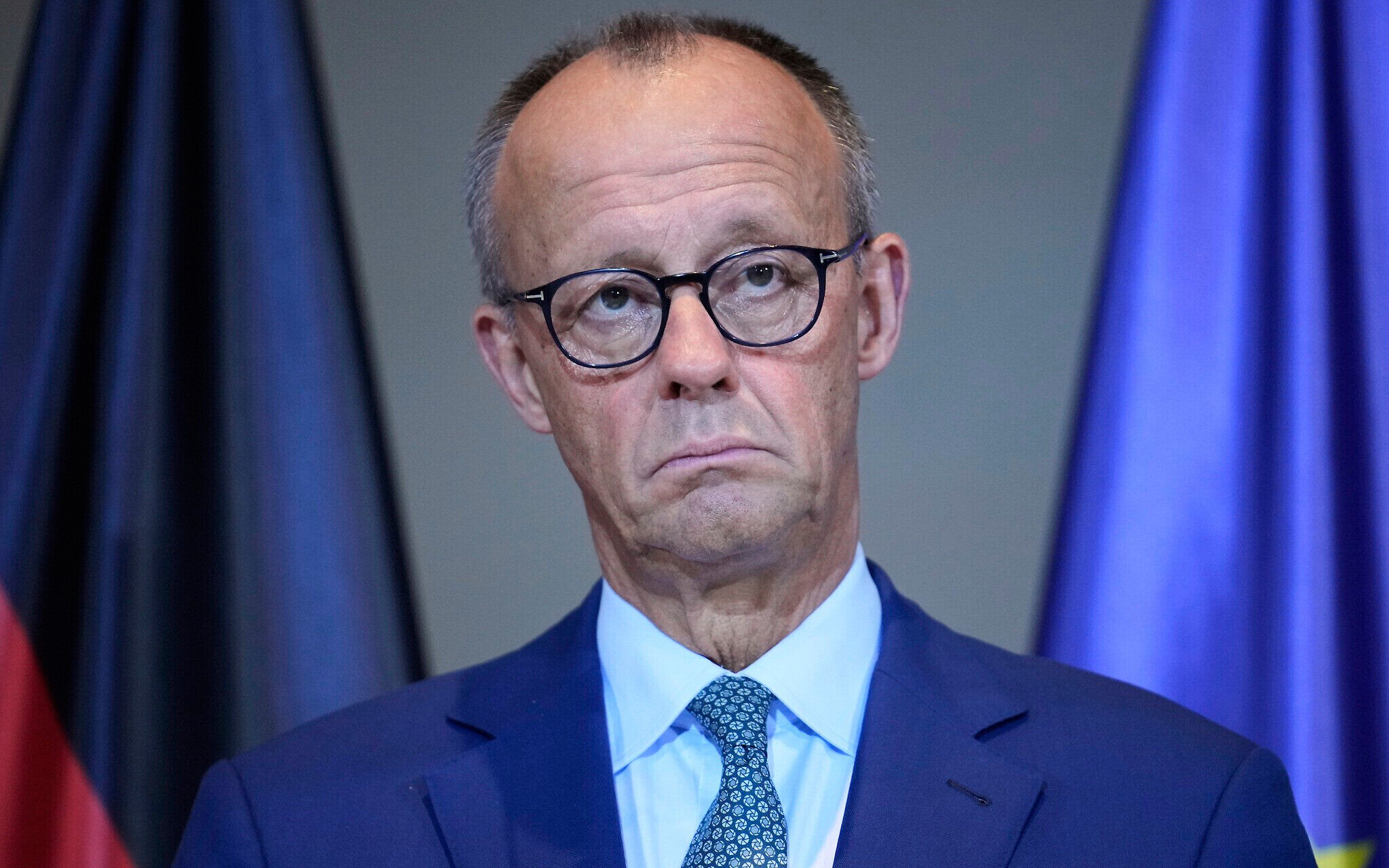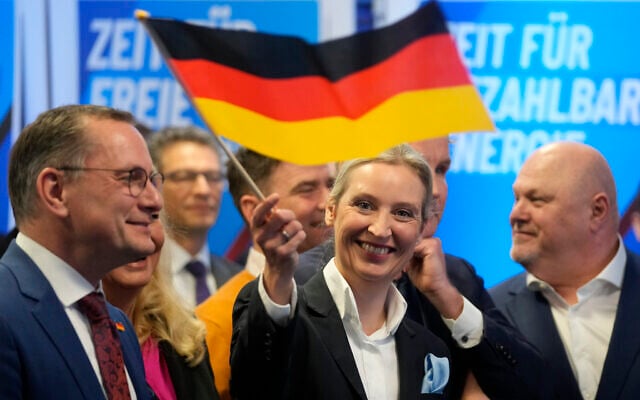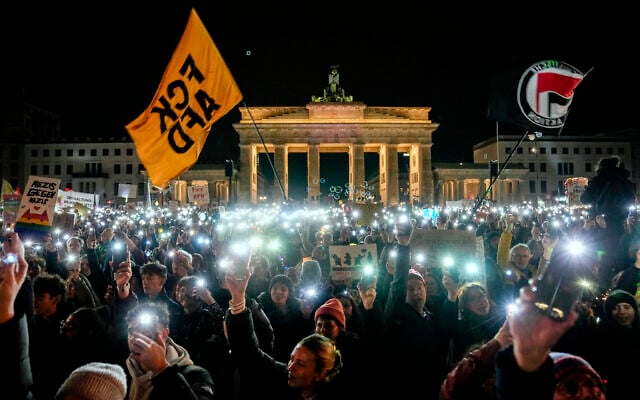


BERLIN — German Chancellor Friedrich Merz’s party finished first in municipal polls on Sunday in the country’s most populous state, but a big winner in the first electoral test since Merz’s government took power earlier this year was the far-right Alternative for Germany (AfD), which nearly tripled its showing compared with five years ago.
Final results reported on Monday showed that Merz’s center-right Christian Democratic Union took 33.3% of the vote in Sunday’s elections for councils and mayors in North Rhine-Westphalia, a western region that is home to about 18 million people. The party’s partners in a national government that so far has failed to lift the country’s mood, the center-left Social Democrats — for whom the state was long a reliable heartland — took 22.1%.
Both parties did worse than in the last municipal elections in 2020. But AfD took 14.5% of the vote — a gain of 9.4% points. The anti-immigration, Eurosceptic AfD has traditionally fared strongest in the formerly communist and less prosperous east, but Sunday’s showing underlined its arrival in recent years as a force in western Germany too.
In Germany’s national election in February, AfD took 20.8% of the vote to finish second and become the largest opposition party, the strongest showing for a far-right party in Germany since World War II. In North Rhine-Westphalia, it took 16.8% in that election.
AfD co-leader Alice Weidel celebrated what she called “a huge success” on Sunday.
The far-right party’s rise has alarmed many German Jews, and Israel’s Foreign Ministry has declined to establish ties with the party. A series of statements from AfD politicians over the years downplaying the Holocaust or opposing the country’s culture of Holocaust remembrance have long drawn attention and concern.

In 2018, one leading AfD politician famously called the Nazi era a “speck of birdshit” in German history. The party has also previously come out against religious circumcision of boys, as well as ritual slaughter, which would preclude kosher and halal meat production.
In May, Germany’s domestic spy agency briefly classified the party as a “confirmed right-wing extremist movement” before pausing that classification.
AfD’s rise has been fueled by discontent over large numbers of migrants but also other issues, including a stagnant economy and the war in Ukraine.
Its success in February followed the collapse of a center-left national government that had become notorious for squabbling. Merz’s conservative-led administration, which took office in May, has taken a tougher approach to migration and is trying to revitalize the economy, but also has drawn unfavorable attention for internal disagreements.
Stefan Marschall, a political science professor at Duesseldorf’s Heinrich Heine University, said that AfD “is in a position to organize the discontent” with the traditional mainstream parties.
“It succeeded in that, particularly in the regions that feel left behind,” he told Phoenix television. He noted that AfD didn’t even field candidates everywhere on Sunday, which meant that its support was “somewhat underrated” by the outcome.

In three of the less prosperous cities in the industrial Ruhr region, AfD mayoral candidates garnered enough support to advance to runoff votes on Sept. 28 against candidates from mainstream parties. AfD contenders will face Social Democrats in Gelsenkirchen and Duisburg, and a Christian Democrat in Hagen.
Merz wrote on X that his CDU is “clearly the strongest force” in North Rhine-Westphalia.
“We are addressing the problems at the national, state and municipal level with determination,” he said. “The solutions are not on the fringe, but in the center — with answers for our economy, migration and security.”
The biggest drop in support on Sunday was for the environmentalist, left-leaning Greens, who fell to 13.5% from 20% five years ago. The Greens are now in the national legislative opposition after the center-left government collapsed, but they’re part of a state government in North Rhine-Westphalia that is led by conservative governor Hendrik Wüst, a prominent figure in Merz’s party. That government wasn’t up for election on Sunday.
JTA contributed to this article.

